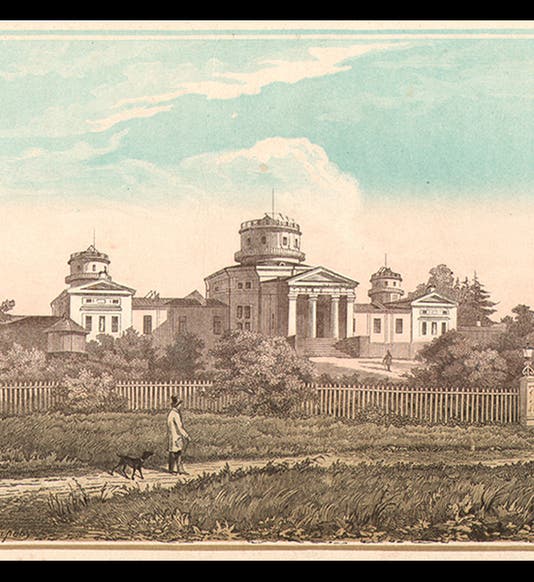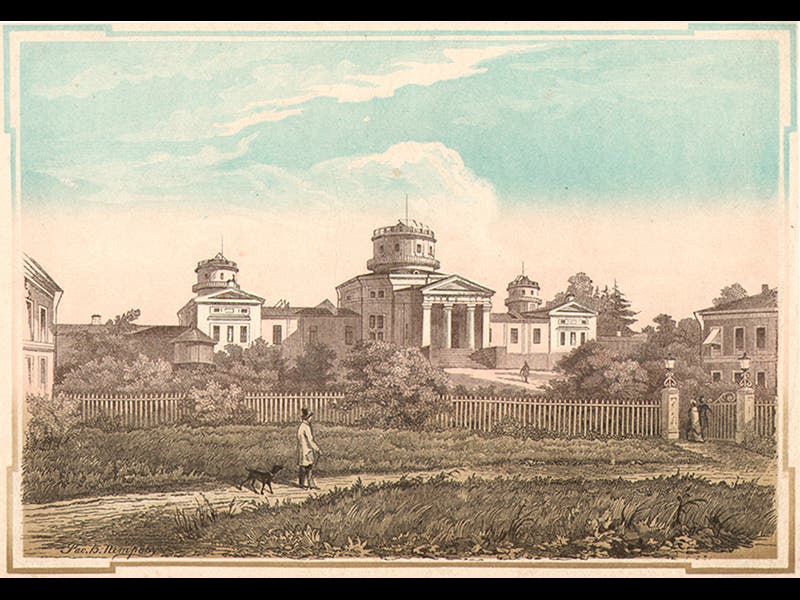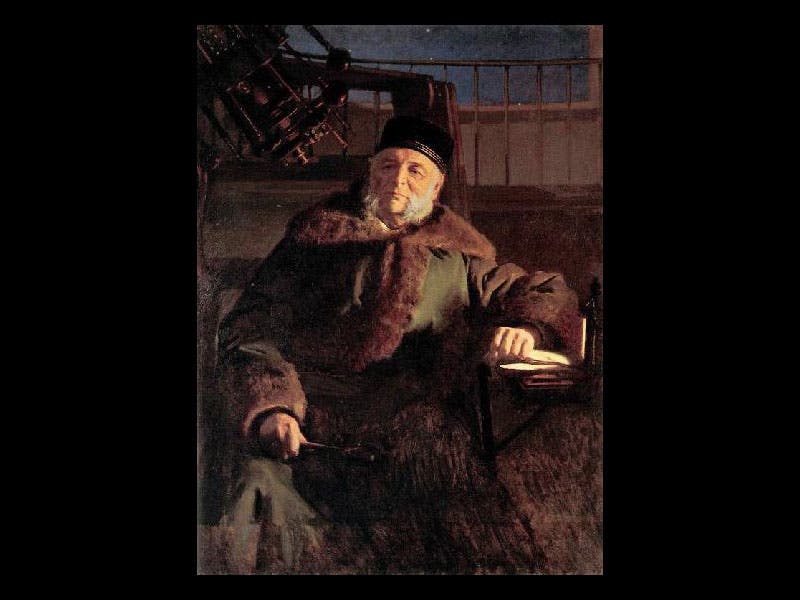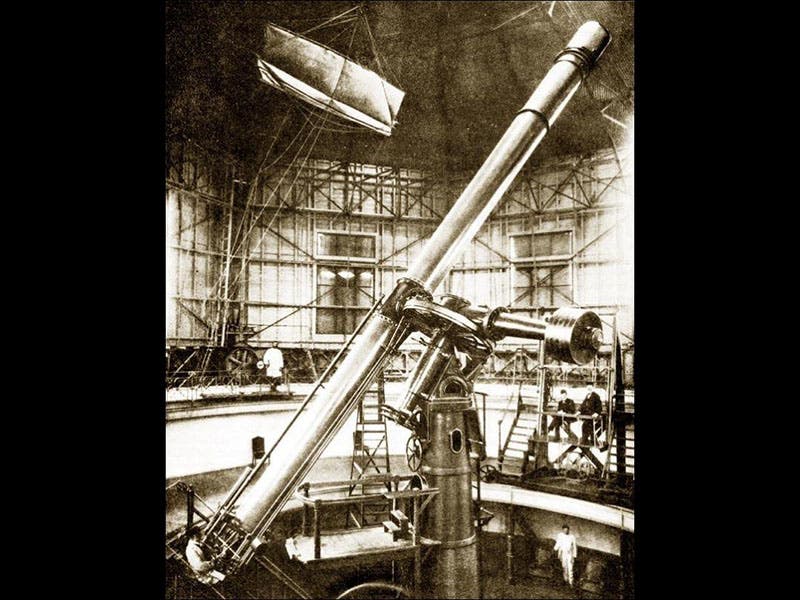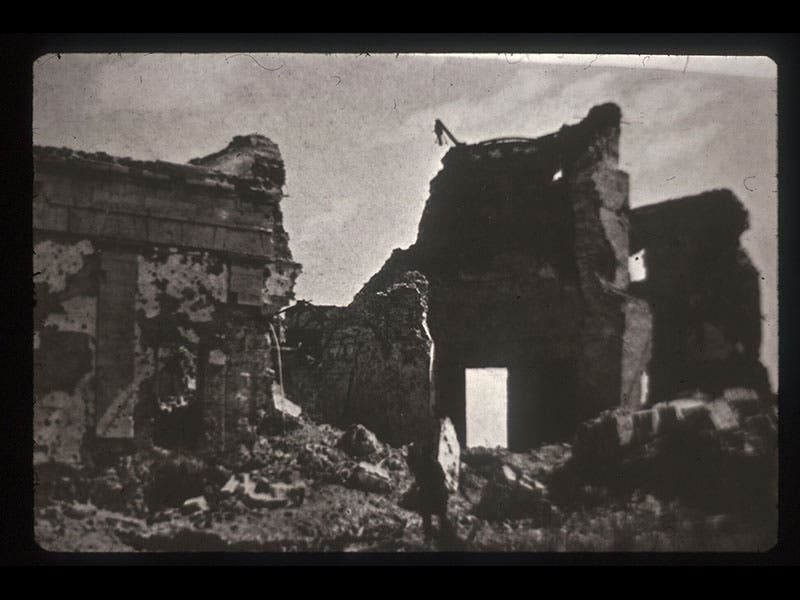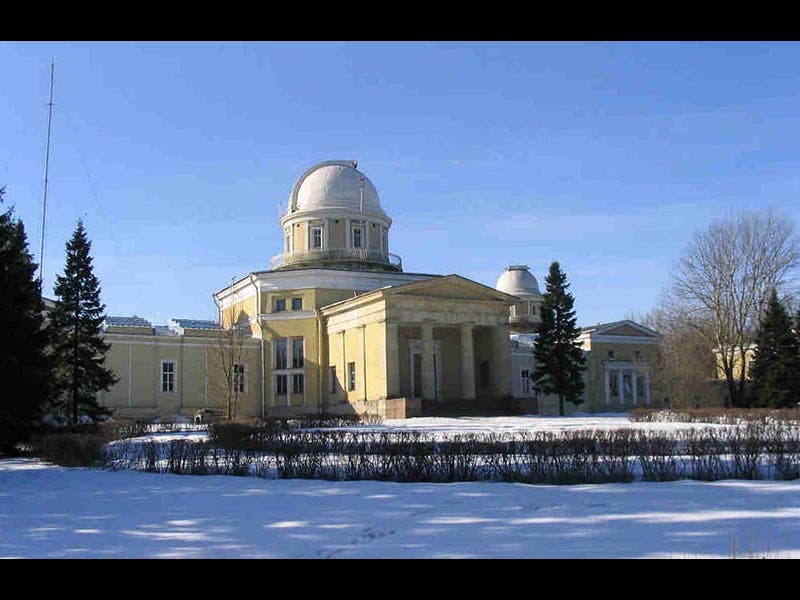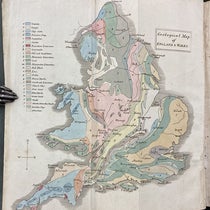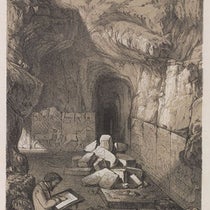Scientist of the Day - Otto Wilhelm von Struve
Otto Wilhelm von Struve, a Baltic/Russian astronomer, died Apr. 14, 1905, at age 86 (second image above). Otto was the second in a long line of distinguished Struve astronomers. His father Friedrich was founder and director of the Pulkovo Observatory, just south of St. Petersburg (first image), and he arranged for Pulkovo to acquire the twin of the 15" refracting telescope that was erected at Harvard College Observatory in 1847, giving Pulkovo and Harvard the two largest refractors in the world. But telescope-making advanced quickly, and soon the University of Chicago had an 18" refractor, and the U.S. Naval Observatory a 26" refractor, both made by Alvin Clark & Sons of Cambridge, Mass., and Pulkovo was being left behind. So Otto Struve, who had become Pulkovo's Director in 1862, travelled to the United States to meet this Clark fellow and his sons, who made such outstanding telescopes. Clark agreed to supply Pulkovo with a lens for a 30" refractor, and Struve proudly presided over the installation of the instrument in 1885; Pulkovo now had the most powerful telescope in the world (third image). The honor was fleeting; three years later, the Lick Observatory in California installed a 36" Clark refractor, and they held the title until 1897, when the Yerkes Observatory in Wisconsin put in a 40" Clark refractor. But this was the last of the big ones, as the astronomical community subsequently turned toward reflecting telescopes.
The Pulkovo refractor was still quite usable, even if it was no longer a champion, and it continued to function until World War II, when the German army shelled Pulkovo Observatory into rubble (fourth image). The 30" lens was saved, and the observatory rebuilt (fifth image), but the telescope itself was gone. Struve's grandson, Otto Struve, was exiled from Russia during the Civil War of 1919, and he fled to the United States. It is ironic that he rose to become director of the Yerkes Observatory, whose 40" Clark refractor does survive, and is still the largest operable refractor in the world.
Dr. William B. Ashworth, Jr., Consultant for the History of Science, Linda Hall Library and Associate Professor, Department of History, University of Missouri-Kansas City. Comments or corrections are welcome; please direct to ashworthw@umkc.edu.

